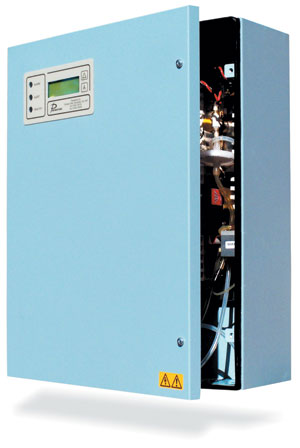John Skelton, group projects manager of Parasense, urges the industry to embrace F-gas legislation rather than view it as a burden.
NOBODY likes the sound of the word regulation. It immediately conjures up images of red-tape, complicated terminology and hours of extra work. But when you consider that 75% of the UK's refrigerant is being manufactured to top up leakages in existing air conditioning and refrigeration systems, the new F-gas legislation has to make sense. Rather than view regulation as a burden, organisations need to look long term and embrace legislation as an opportunity to streamline processes, cut wastage and reduce environmental damage. The environmental concerns alone should make the air conditioning and refrigeration industry sit up and take notice but add this to the cash-saving benefits of reducing leakage and you have a powerful business case.
F-gas legislation states that operators of refrigeration, air conditioning and heat reclaim pump equipment should 'use all methods which are technically feasible and do not cause disproportionate cost' to prevent leakage of fluorinated greenhouse gases and repair any detected leakage as quickly as possible.
While some of the smarter organisations have already developed refrigerant management strategies, many more need to follow suit. For effective results, all relevant parties should be involved from the outset to ensure shared vision and goals. It is crucial that there is a central objective to the process.
Evaluate your current system and determine what would be of maximum benefit to your organisation. It's all too easy to go for the first system you come across which will enable you to meet the legislation without considering other useful features that could bring added benefits. Taking the time at the outset will be well worth it down the line.
Once objectives are in place, the first step is to carry out a thorough systems audit. This will help to establish whether you need to fit refrigerant monitoring and enable you to select the most appropriate method of leak detection for your circumstances. The legislation specifies that new and existing refrigeration or air conditioning systems with a charge of more than 300kg must be covered by a leak detection system. However, while the charge in your system may not make it a legal requirement for your own business, it will reduce the required frequency of annual manual checks.
Accuracy and reliability should be the main points of consideration during the selection process. There are various systems you could employ and a good supplier will be able to discuss all the options and make recommendations to suit your specific circumstances.
A refrigerant management strategy should not end with the installation of equipment. An individual or team within the organisation needs to hold responsibility for analysing these records regularly to identify patterns and trends effectively. Through close observation problem systems or components can quickly be identified and put right. This will aid the process of containment and reduction of leaks as well as provide a strong business case for implementing effective and appropriate changes.
Lastly, companies must be urged to smarten up on the service and maintenance of equipment. To ensure you get the most from any system you purchase, you must ensure that all areas are properly covered and that focused monitoring and reporting is used to make best use of your engineers' time.
Whichever option you go for should be compatible with any existing systems you have on site, such as refrigeration controls systems.
It's also useful to be able to gather data via a PC locally or via a bureau remotely.
And, remember, a system that loses 15% of its refrigerant charge through leakage will see a 50% drop in cooling capacity and a corresponding 100% increase in energy consumption. F-gas legislation might seem a pain but reducing refrigerant usage will save your business time and money. Adopting an holistic refrigerant management strategy can bring significant benefits to the bottom line.

Parasece's IP addressable monitor